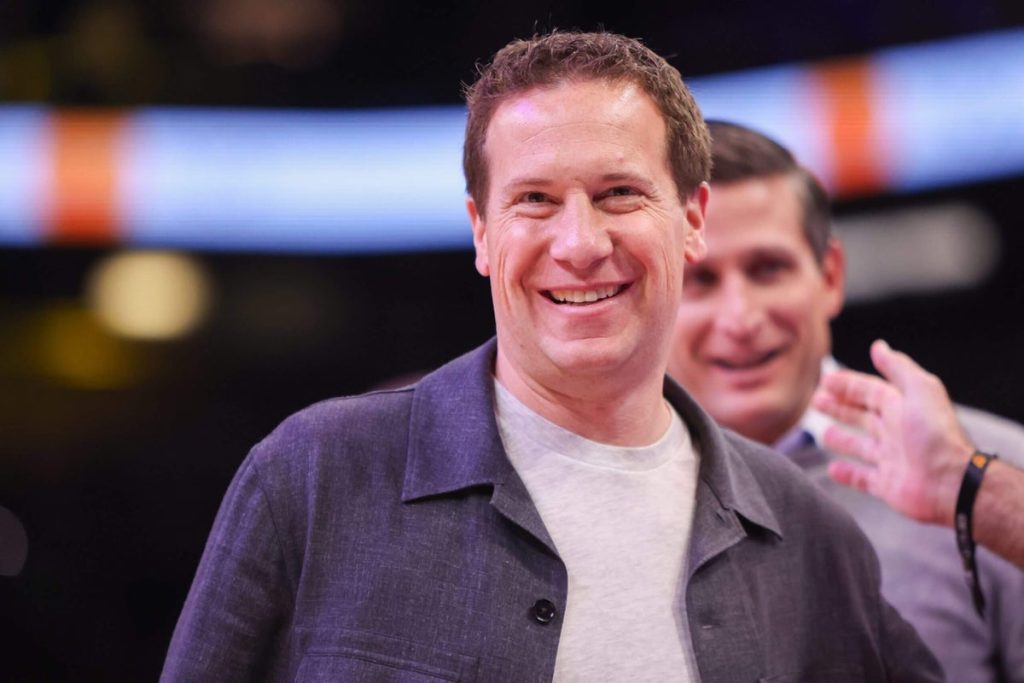By: Doug Haller, Bob Harkins and Rebecca Tauber
A pair of Phoenix Suns minority owners have sued the NBA franchise and its majority owner, Mat Ishbia, over an alleged refusal to produce internal documents and a lack of transparency, according to court documents filed in Delaware.
The lawsuit was filed on Aug. 21 under seal by attorneys representing Kisco WC Sports II and Kent Circle Investments. A redacted version of the complaint was made public on Wednesday. The founder and CEO of Kisco Senior Living is Andy Kohlberg, and the president of Kent Circle Partners is Scott Seldin. Kohlberg and Seldin are minority owners of the Suns who kept their stake after the previous owner, Robert Sarver, sold the team to Ishbia’s group.
The plaintiffs sought access to the company’s records after alleging that specific actions were taken to diminish their leverage as minority owners. They stated that Ishbia made a capital call on June 2, which “appears to be part of a leverage strategy to exert pressure on and dilute” their ownership shares.
The Suns had no comment when reached on Wednesday night.
The Suns and Phoenix Mercury were valued at $4 billion in 2023 when Ishbia bought a controlling stake of 57 percent for $2.28 billion.
However, the plaintiffs say that on the capital call, Ishbia offered a valuation of the shares that “is strikingly low and bears no relationship to the actual value of the company.”
Citing the NBA’s “explosive growth,” the plaintiffs point to the Boston Celtics being sold for $6.1 billion in April and the Los Angeles Lakers being sold for $10 billion in June.
The alleged low valuation was “baseless and posed a significant risk to all minority owners,” the lawsuit said.
On Tuesday, an attorney representing Ishbia and the Suns sent a letter to the attorneys representing the minority owners. In the letter, which The Athletic obtained, the Suns say that Kohlberg and Seldin demanded that the team buy their ownership share for $825 million, a number that would put the organization’s value in excess of $6 billion, roughly a 60 percent increase in value from when Ishbia purchased a controlling interest in the winter of 2023.
The attorney for the Suns suggested the organization’s value is closer to $7 billion, but added Kohlberg and Seldin didn’t have the right to insist that Ishbia “acquire their interest at all, much less at the valuation and premium they are demanding.” The letter says the minority owners can sell their shares to another party.
“Make no mistake,” the letter reads, “(Ishbia) does not intend to reduce or slow its investments in the Company and its teams. To the contrary, (Ishbia) will continue doing whatever it takes to position the Suns and Mercury to win championships, ensure a positive team culture, create a lasting impact on the greater Phoenix community, and improve the fan experience. (Ishbia) is not afraid to exceed the luxury tax line and make other commitments to ensure the Suns and Mercury remain first-in-class operations. If your clients do not share these same priorities, then perhaps they should try to sell consistent with the terms of the parties’ agreement.”
The complaint also accused Ishbia of entering into “side deals with other investor members” in the company, including those related to the capital call. The plaintiffs had sought access to records in part to determine if such side deals existed.
The plaintiffs also had “growing concerns” about the management of the franchise and questioned the funding of a $100 million practice facility for the WNBA’s Mercury, which opened in July 2024. Per the complaint, Ishbia disclosed only that the organization “complied with its duties under the LLC Agreement.”
This marks the sixth lawsuit filed against the Phoenix organization since the fall of 2024. The others involved current or former employees, who accused the Suns of harassment, discrimination, retaliation and wrongful termination. A Suns spokesperson has called those allegations “categorically false.”
(Photo: Brett Davis / Imagn Images)


